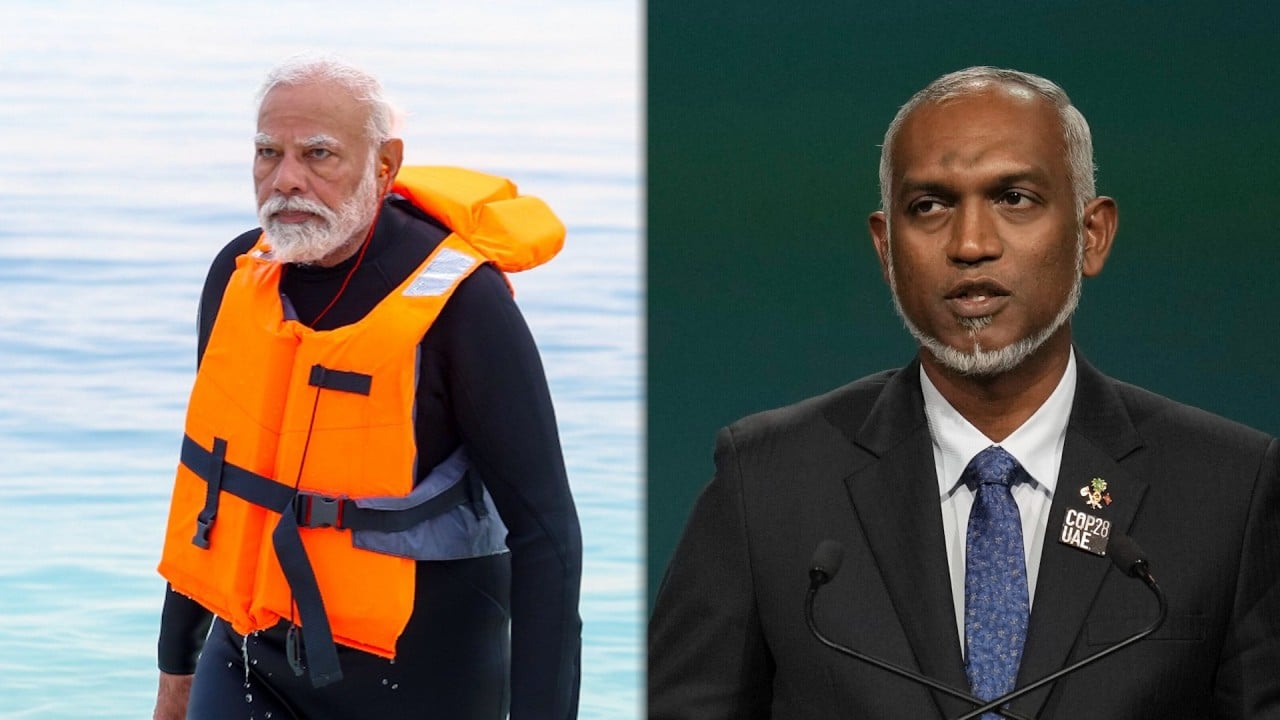Advertisement
Maldives signed military deal with Beijing but may remain swing state in China-India tug of war
- As Indian military begins withdrawing from Maldives, China’s defence ministry confirms a PLA delegation last week visited Male and met President Muizzu
- Analysts look to broader China-India relations and US Indo-Pacific policy to assess implications of the Maldives’ ties with Beijing
Reading Time:4 minutes
Why you can trust SCMP
20

The military assistance agreement signed between the Maldives and China last week came at a sensitive time. The island’s new China-friendly president sought to elevate ties with Beijing to reduce dependence on New Delhi, including asking its South Asian neighbour to withdraw troops from the country.
Advertisement
Some 89 Indian military personnel began withdrawing from the island nation this week as the Chinese defence ministry confirmed on Wednesday that a People’s Liberation Army delegation had visited and met President Mohamed Muizzu last week.
Without mentioning the agreement, the Chinese statement said the Maldives trip was part of a three-nation tour that also included Sri Lanka and Nepal – also India’s neighbours – that focused on promoting defence cooperation with Beijing.
China’s foreign ministry described the agreement last week as part of “normal cooperation” between the two countries that did not “target any third party and does not undergo any interference by third parties”, but observers said it signalled the Maldives’ further tilt towards Beijing amid its deteriorating relations with New Delhi.
The Maldivian defence ministry said the pact signed in Male on March 4 to receive free military assistance from China was aimed at “fostering strong bilateral ties”, without providing further details.
Advertisement

Advertisement
